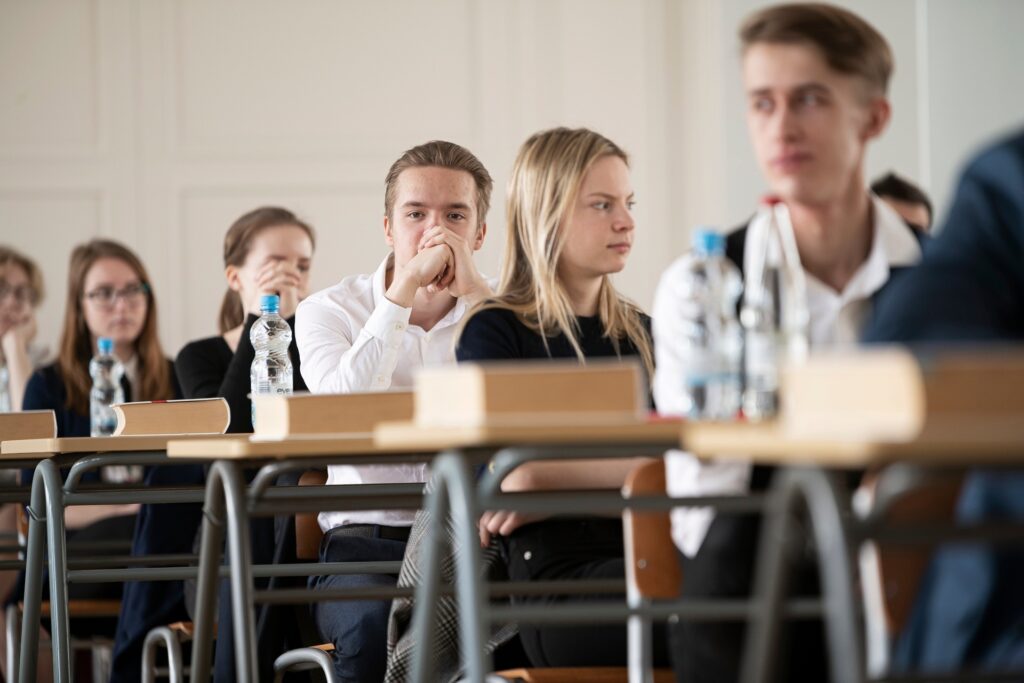According to the Estonian report of the International Civic and Citizenship Education Study, of the countries that participated in the 2022 survey, Estonian students are in fourth place after China, Sweden and Poland in terms of their knowledge about society.
The study shows there are still many students with a high-performance level and few students with a low performance level in Estonia. The level of knowledge of students in schools with Estonian as the language of instruction continues to be higher than that of students in schools with Russian as the language of instruction, but this gap has decreased compared with the 2016 survey, remaining at 46 points.
Similarly to other countries participating in the 2022 study, as well as the results of previous studies, the level of social knowledge of girls is higher than that of boys, the difference is on average 23 points.
While in most countries the performance level of students has decreased compared with the 2016 survey, the results of Estonian students have remained almost at the same level as in 2016. The drop in performance level is justified in the study by the COVID-19 pandemic.
The study focused on students’ knowledge about society, attitudes and participation in society. In addition to students, data was collected from teachers teaching eighth grade and heads of schools. A total of 3,961 eighth grade students from 254 Estonian schools participated in the study.
“We can continue to rejoice over the high-level social knowledge of Estonian students. This likely shows, among other things, the better ability of our schools and teachers to adapt to the distance learning situation,” Meril Ümarik, the head of the Estonian study, said.

Schools should offer opportunities to practice being active
“At the same time, it is worrying that the indicators of civic participation of Estonian students – participation in school, community and expected political participation – are on a downward trend and significantly lower compared with the International Civic and Citizenship Education Study countries. We should offer students more opportunities to practice being an active and responsible citizen through school and various non-formal learning contexts,” she added.
According to Maarja Tinn, a co-editor of the study report and the chairwoman of the Estonian History and Civics Teachers’ Association, the study highlighted alarming differences between girls and boys in their attitudes towards human rights and especially gender equality issues.
“The negative attitudes of the latter proved to be particularly striking, showing a significant regression, especially in political issues related to the role and participation of women,” Tinn said.
A total of 24 countries participated in last year’s international citizenship education study, including Estonia, Brazil, Bulgaria, Colombia, Spain, the Netherlands, Croatia, Italy, Cyprus, Latvia, Lithuania, Malta, Norway, Poland, France, Sweden, Romania, Germany, Serbia, Slovakia, Slovenia, Denmark and China.
Estonia has been participating in the International Civic and Citizenship Education Study since 1999. The study provides an overview of eighth grade students’ knowledge and attitudes about civic education and society as well as social participation in an international comparison.

